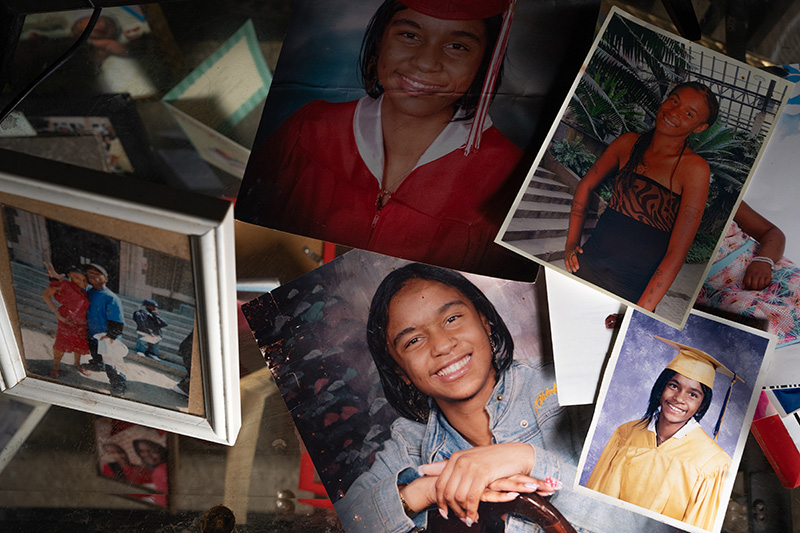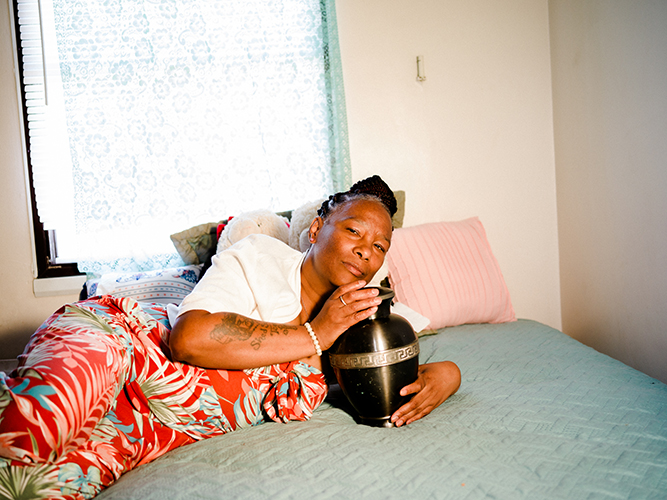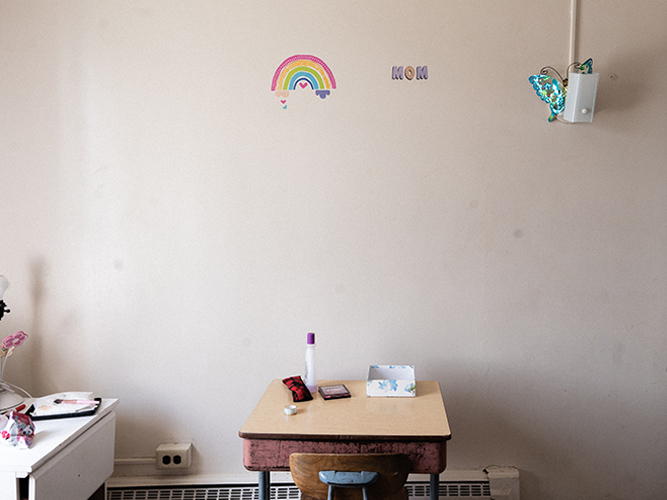November 14, 2023
Shantieya Smith was a proud, protective mother.
Every morning, rain or shine, the slender 26-year-old would sling her young daughter’s backpack over her shoulder, and hand in hand, they would dash across the street to the neighborhood elementary school.
Smith was a protector in her North Lawndale home, where three generations lived under one roof — the cousin you’d call when there was trouble, who’d teach anyone the latest Chicago dance styles in the living room, and whose cherry red or bottle blonde weaves mirrored her bright energy.
So when Smith walked out her front door on a warm May afternoon in 2018 to run a quick errand, her mother Latonya Moore didn’t think much of it.
“It was a trip that was supposed to be so fast she didn’t even bring her cell phone,” Moore remembers. Moore didn’t realize this would be the last moment she would see her daughter alive.

In fact, it was the beginning of a two-week odyssey where Moore would confront Chicago police about their response to the case, hold press conferences to accuse police of inaction, and even call out then-Police Superintendent Eddie Johnson himself. She would collect evidence on her own and scrape together as many community resources as possible to search for her missing daughter.
Two weeks later, Smith’s body, disposed and desecrated, was found in a nearby abandoned garage. Her case joined the 99.8% of missing person cases from 2000 to 2021 that Chicago police have categorized as “not criminal in nature.”
“I am still getting the runaround to this day,” Moore says, years after Smith’s body was found. A killer has still not been charged. If police had taken her case seriously, things might be different, she says.
“When it comes to justice, I get angry,” says Moore. “I get to the point of, why me?”
Chicago’s missing person crisis is a Black issue.
Black people have made up about two-thirds of all missing person cases in Chicago over the past two decades. In particular, Black girls and women between the ages of 10 and 20 make up about 30% of all missing person cases in the city, according to police data, despite comprising only 2% of the city population as of 2020.
Already distrustful of police due to decades of racial profiling and abuse — including a legacy of police torture and a federal investigation that led to a still-active court-mandated reform plan — Black Chicagoans say that police do not act urgently or sufficiently to find their missing loved ones.
While police officials have publicly claimed that services for families are equal and fair across race and ZIP codes, massive gaps in missing persons data make it impossible to prove, according to a two-year investigation by City Bureau and the Invisible Institute. Instead, interviews with current and former police officers, national experts and researchers, along with dozens of anecdotes from impacted family members, reveal a pattern of neglect, incompetence and illegal behavior from police officers in missing person cases:
Not only does this erode the community’s already thin trust in Chicago Police, but even sources within the police department say that bad management and inefficient systems leave detectives burned out and unable to help families in need. It also means that a recently formed state task force that is examining the issue of missing women and girls in Chicago will face a near-impossible hurdle in linking missing person cases to crimes like murder and human trafficking.


In a moment when missing person cases are garnering more attention, both nationally and locally, public officials and community members agree that tackling the missing persons issue will require holistic solutions: from changing state laws, to retraining police officers and allocating resources to missing person investigations, to funding community programs like safe houses, mental health services and neighborhood searches. But filing a police report is many people’s first step when their loved one goes missing — and community members want to know what they could, and should, expect from police.
A spokesperson in Mayor Brandon Johnson’s office recognized there are inequities in how police handle missing person cases in Chicago. “The historical disparities that exist in our city when it comes to solving missing person cases among Black and Brown Chicagoans — and Black women, in particular — is an example of the lack of visibility for marginalized communities,” says spokesperson Ronnie Reese. “We need to see people in order to care for them, and ultimately protect them from wicked systems that have been a threat to these communities for generations.”
Despite City Bureau and the Invisible Institute reaching out to the Chicago Police Department media affairs over the course of months to better understand the department’s data management and missing persons pipeline, department officials declined to be interviewed or to answer any specific questions about cases or data.